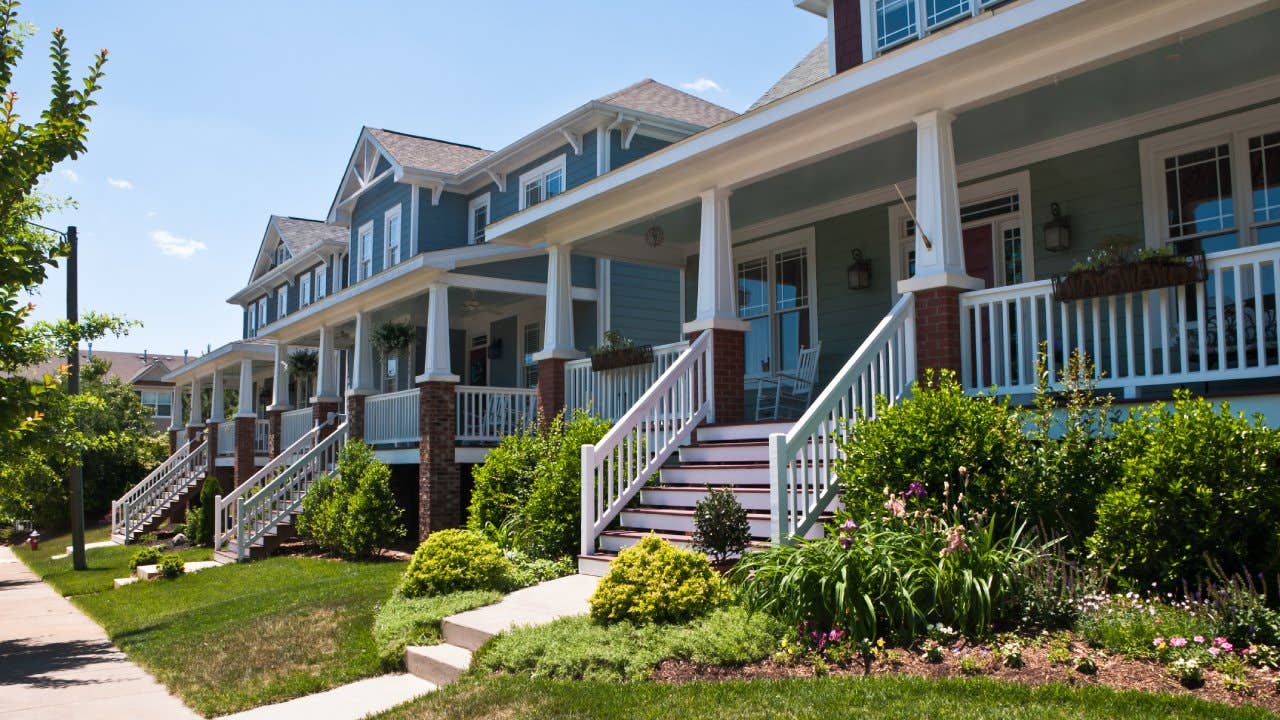Closing costs in North Carolina

With homes in the U.S. selling for a median price of $435,300, according to the National Association of Realtors, few would question the notion that real estate purchases and sales are among the largest financial transactions most people ever make. Closing costs, the fees and taxes that are part of every real estate deal, can tack on as much as an additional 5 percent of the loan amount.
Closing costs can vary widely from state to state, and North Carolina is a relative bargain compared to many others. According to new data from LodeStar Software Solutions, the Tar Heel state’s closing costs average only about 0.56 percent of the sales price — a great deal less than say, Virginia’s 1.36 percent or even South Carolina’s 0.65 percent.
How much are closing costs in North Carolina?
According to Redfin data, the median selling price of a single-family home in North Carolina was $395,400 in June 2025. With a closing cost average of 0.56 percent of the sales price, that comes to $2,214. That percentage from LodeStar includes average fees, recordation charges and transfer taxes required to close a typical purchase transaction in a given area. Settlement, closing, and escrow fees and both owner’s and lender’s title policies are also factored in to the average percentage. It doesn’t include other common costs such as real estate agent commissions or optional mortgage points.
Since many closing costs hinge on the price the house sells for, the amount you’ll owe in North Carolina can also vary widely depending on the local market in your location. The median sale price of a home in rural Mount Airy, for example, is $242,250, which would put closing costs at about $1,356. The booming city of Raleigh has a median of just under $460,000, meaning closing costs of roughly $2,576. And should you choose a seaside home at Kure Beach, expect a median sale price of $590,000 and closing costs of more than $3,304.
Who pays closing costs in North Carolina, buyers or sellers?
Both buyers and sellers pay some portion of closing costs, in North Carolina and every state. Sellers typically shoulder a larger financial burden, since they usually pay the real estate agents’ commissions.
Some counties or cities may have fees unique to that area, and depending on whether the local market favors buyers or sellers, either side may try to negotiate exactly who pays what. Here are some common closing costs for sellers and buyers.
Closing costs for buyers
-
Origination fee: Most lenders charge an origination fee for establishing your loan. In North Carolina, the loan origination fee is capped at 0.25 percent, meaning the fee on a $316,320 loan (after 20 percent down on a median-priced $395,400 sale price) would be about $790.
- Mortgage points: You may want to pay money upfront to lower the interest rate on your loan. Mortgage points can save you money over the long haul but will cost you around 1 percent of your loan amount per point, initially. A point typically lowers your interest rate by 0.25 percent.
-
Title-related fees: A title search involves reviewing property records to confirm that there aren’t any liens or encumbrances on the home’s title; it typically costs between $300 and $600. A title insurance policy protects you and your lender against defects with the title. This is a one-time premium (not monthly) paid at closing and usually costs 0.22 to 0.25 percent of the sale price.
-
Insurance premiums: Mortgage lenders may require you to deposit funds into an escrow account in advance for several months worth of future homeowner’s insurance payments.
- Property tax: Similarly, you may also be required to pre-pay a certain amount of property taxes into escrow to ensure timely payment to the local county.
- Appraisal and inspection costs: Lenders require an appraisal to make sure the home you’re buying is worth the amount you’re borrowing; these usually cost a few hundred dollars. Most buyers will also want a professional home inspection to determine whether the home has any major damage or problems; that’s probably another few hundred.
- Recording fees: At closing, the new deed (and new deed of trust in the case of a financed sale) will be recorded at the county courthouse with the Register of Deeds. Recording fees usually run less than $100.
Closing costs for sellers
- Agent commissions: Realtor commissions are usually one of the biggest expenses for home sellers. A listing agent’s commission typically runs between 2.5 and 3 percent of a home’s sale price — on a median-priced $395,400 North Carolina home, 3 percent is $11,862. It’s important to note that recent changes to real estate commission rules no longer require sellers to offer or pay for the buyer’s agent’s commission, but many sellers still do it as a concession.
- Excise tax (revenue stamps): North Carolina collects an excise tax, also called “revenue stamps,” on every real estate sale. The rate is $1 for every $500 of the sale price. So a $395,400 home sale would incur $791 in revenue stamps.
-
Prorated property taxes and HOA fees: Sellers are responsible for property taxes up to the closing date. If the home is part of a homeowners association, you may be responsible for HOA fees up to the closing as well.
- Wire fees: This minimal cost ($35 to $50) is to send your mortgage payoff to your lender.
- Seller concessions: If you agree to it, you as the seller may pay some of the buyer’s closing costs, or cover the cost of necessary repairs to the home.
Lowering your closing costs in North Carolina
Like a lot of things in real estate, many closing costs are negotiable. For example, North Carolina homebuyers hoping to lower their costs might ask the seller to pay for repairs if any problems turned up in the home inspection. Buyers should also check to see if they qualify for federal, state or local assistance. There are many state programs aimed at first-time buyers in particular that can help cover both closing costs and the down payment, including the NC Home Advantage Mortgage program.
If you’re a seller, keep in mind that the real estate agents’ commissions might be negotiable too. Depending on the price of the home, even a small discount on this rate can save you a lot of money.
Find a local trusted real estate agent
Whether you are buying or selling a North Carolina home, the process will go more smoothly with an expert by your side. In the Research Triangle, in Charlotte or at the beach, a local agent will know the local market well and help you find the deal you’re looking for, at the right price.
To find an agent, start by asking friends and relatives who have had a positive experience in the past buying or selling a home. Look online, too, and walk or drive through the neighborhoods you’re interested in to take note of “for sale” or “sold” signs.
FAQs
Why we ask for feedback Your feedback helps us improve our content and services. It takes less than a minute to complete.
Your responses are anonymous and will only be used for improving our website.






